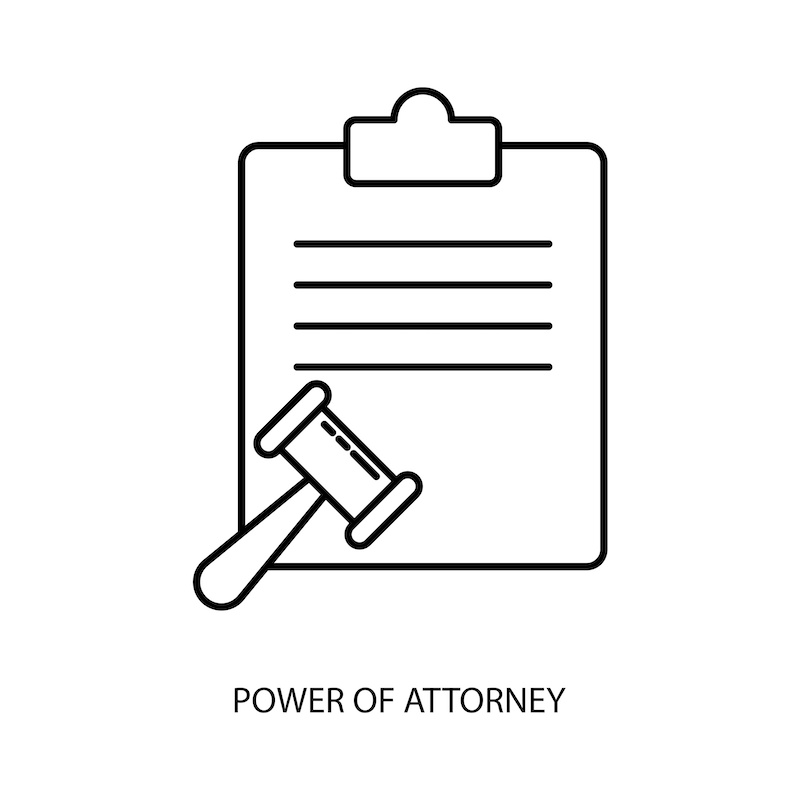
The term fiduciary comes with a rich history. In fact, it generally means someone who remains legally obligated to act in another person’s best interest. Trustees, executors, and agents are examples of fiduciaries. You select people to fill these roles in your estate plan. Thus, you choose one or more people to make decisions, including your POA (power of attorney). The decisions should be made in the best interests of you and your beneficiaries and in accordance with your instructions. You should also choose multiple backups for each of these roles. You do so in case your first choice is unable or unwilling to act when the time comes.
Make sure you understand the basics of what each role entails. Furthermore, you should understand to consider when making your choices can help ensure that your estate plan is effective.

Trustee & POA
A revocable living trust (RLT) is often the center of a well-designed estate plan. The reason for this is because it is the best strategy for achieving most people’s goals. You (as the Trustmaker) serve as the initial trustee. As such, you manage the trust’s accounts and property. These are done in the same manner that you did before you created the trust. Thus, you appoint a successor (backup) trustee in the trust agreement. That person assumes the role of wealth management. They do so in accordance with your wishes after your death or during your incapacity (when you can no longer manage your affairs). It is best to have a trusted person or financial institution carry out this vitally important role.
Your successor trustee will control only the accounts and property owned by the trust. If you own accounts and property in your sole name, your successor trustee will not manage those items upon your death or incapacity. You rely on your financial POA to provide the authority to manage accounts and property while you remain incapacitated.
When you pass away, accounts and property in your sole name without a beneficiary designation may have to go through the probate process. Probate requires your executor to step in and manage those items and ultimately distribute them to the people who have priority under state law (who may not be the people you would have chosen). This is why it is of the utmost importance to appoint the right person to be your successor trustee and to fund your living trust fully.
Powers of Attorney (Aka POA)

Powers of attorney are the documents in your estate plan that appoint individuals to make decisions on your behalf if you are alive but unable to do so yourself. There are a few different types of powers of attorney, each with their own specific areas of responsibility. We can help you decide which types of powers of attorney you will need based on your current situation and future goals. Here are two common types to include in your estate plan:
Financial Powers of Attorney (POA)

Financial powers of attorney grant the fiduciary you select the ability to take financial actions on your behalf, such as purchasing life insurance or withdrawing money from your bank accounts to cover your expenses. A fiduciary acts under the authority given in a financial power of attorney. As such, the court refers to them as an agent. Your agent manages the accounts and property not owned by your trust.
If the trust owns an account or property, it is the responsibility of the trustee to manage that item, as discussed above. You can name an individual as your agent or, in some circumstances, you can name an institution, like a trust company. In most states your agent charges a fee for acting as your agent under a financial power of attorney. However, keep in mind that trust companies generally charge higher fees and will likely not waive fees like your loved ones might.
Healthcare Powers of Attorney and Related Documents
A healthcare power of attorney allows you to name a trusted person to make or communicate your medical decisions on your behalf when you cannot do so yourself. These decisions may range from deciding what surgeon to use to whether to remove you from life support. The court uses other documents in conjunction with the healthcare POA. These cover specific actions regarding your medical needs. For example, it impacts the way you make decisions about the types of care you wish to receive or who can access your medical information.
Executor

Your executor (called a personal representative in some states) is the person who will see your accounts and property through probate, if necessary, and carry out your wishes based on your last will and testament if you have one. Depending on your preferences, your executor may be the same person or institution as your successor trustee.
Professional as Executor & POA
Some individuals choose to name a professional as their executor. The professional is usually someone who does not stand to gain anything from the will and can be a good choice if you own a great deal of different property and accounts to be divided among many beneficiaries. In other words, the more complex your estate and distribution scheme, the more it may make sense to have a professional in charge. A professional may also make sense if you do not have someone you personally know who can serve as the executor. Family or friends may serve, but it is important to consider the amount of work involved before placing this burden on someone who has little time or experience administering the estate of someone after they pass away.
Being an executor can be hard work and may have court-dictated deadlines; it is crucial to pick someone you know will be up to the job. They will probably need to hire an accountant to help sort out your taxes and a lawyer to assist in the process. If there is a dispute, then attorneys, appraisers, mediators, or other professionals will undoubtedly need to be involved. Choosing a spouse or another loved one to serve as your executor may be convenient because they may already be familiar with what you own and have an easier time ensuring that your wishes are carried out. However, because of the time involved and the nature of some accounts and property, they may not be up to the task at the time.
Get in Touch with Us Today to Discuss POA

Let us help you make the process of picking your trustee, agents under powers of attorney, and executor as smooth and headache-free as possible. Once you have these choices in place, you will be able to rest easy knowing that your estate plan is in good hands no matter what life brings. Call us to make an appointment today.
About Skvarna Law Firm in Glendora and Upland, California
Skvarna Law Firm operates offices in Glendora and Upland, California. We provide legal services. We cover San Bernardino, Los Angeles, Orange, and Riverside Counties. This includes several cities. Upland, Ontario, Rancho Cucamonga, Fontana, Colton, Rialto, Chino, Chino Hills, Glendora, Claremont, Pomona, La Verne, Montclair, San Dimas, Azusa, Covina, West Covina, Diamond Bar, Walnut, La Puente, Corona, Norco & Mira Loma. Visit SkvarnaLaw.com to learn more.


